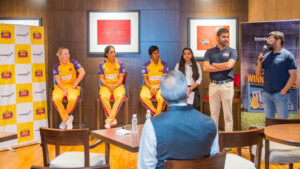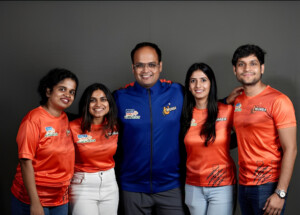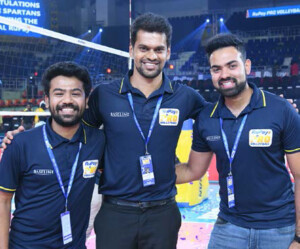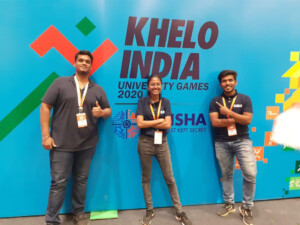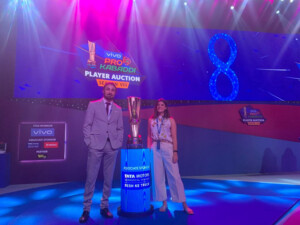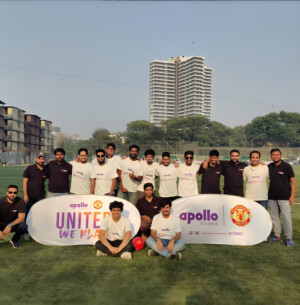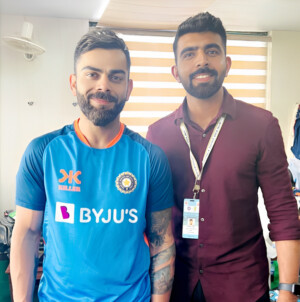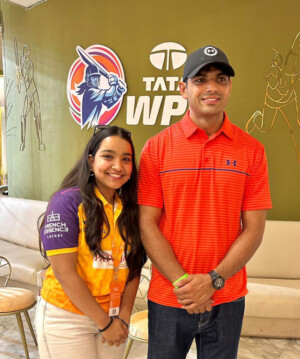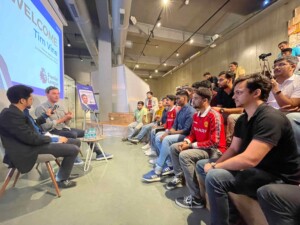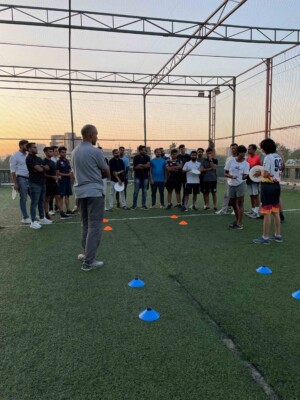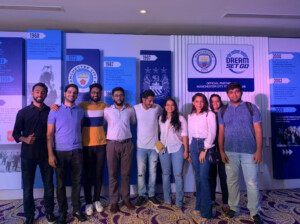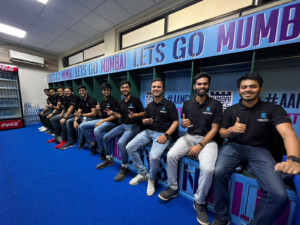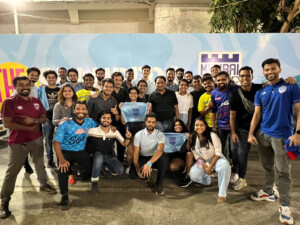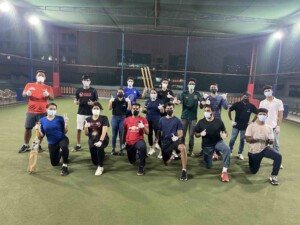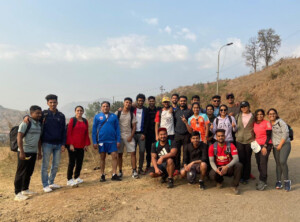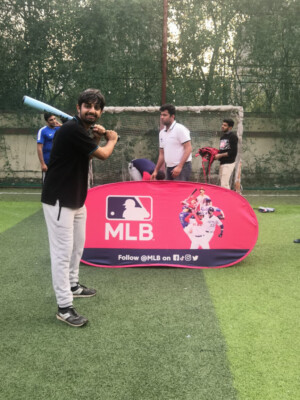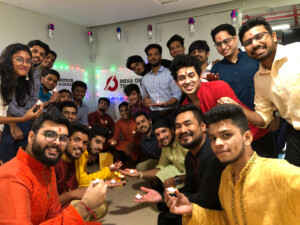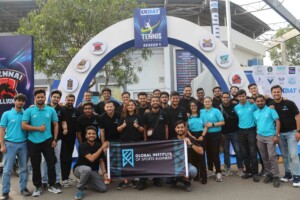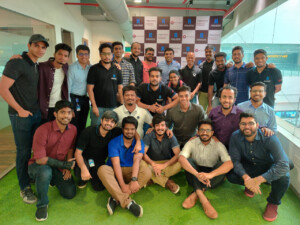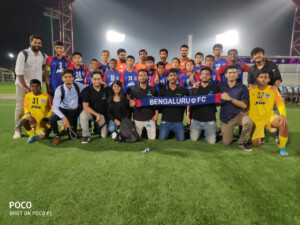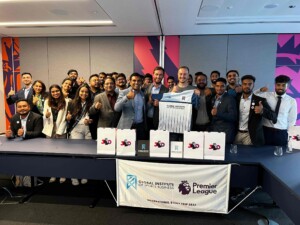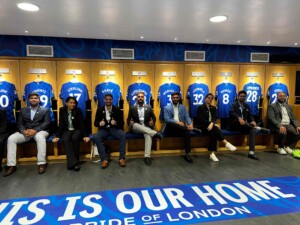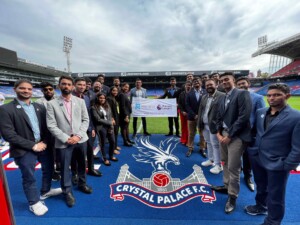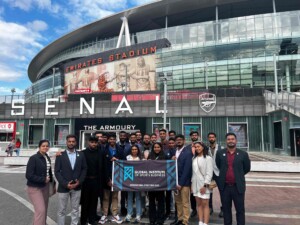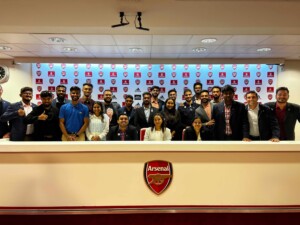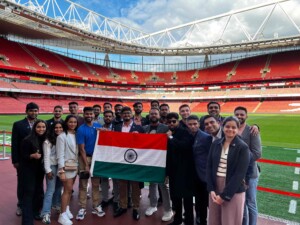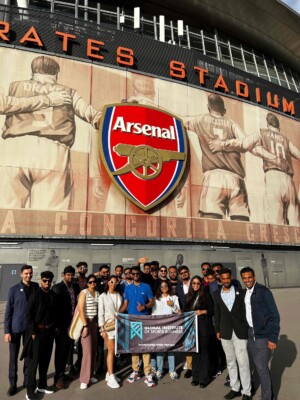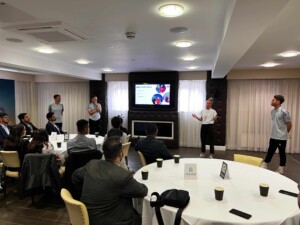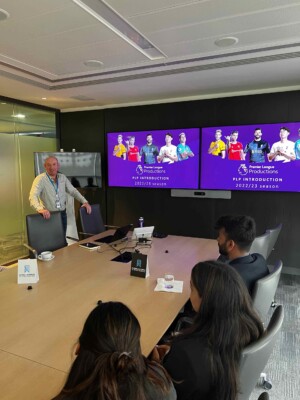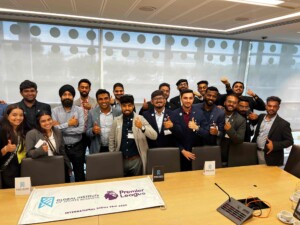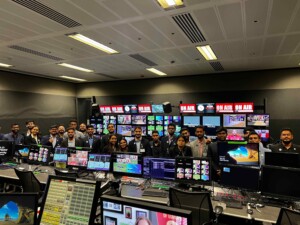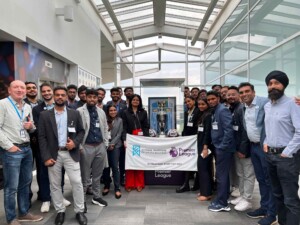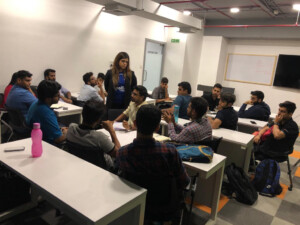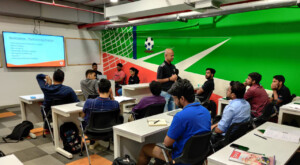Fan engagement strategies are taking over the sports industry as, in the ever-changing environment of sports, entertainment, and beyond, the core of any successful business is its engaged and loyal fans. As we go into 2024, the importance of effective fan interaction techniques continues to expand significantly. Organisations throughout the world like the Global Institute of Sports Business (GISB) are continually refining their strategies for connecting with people on a deeper level, inspiring loyalty, and providing unforgettable experiences in the field of sports. Here are five major methods that are defining the landscape of fan engagement in 2024, backed up by real-world examples.
Digital Fan Experience
In the quickly evolving world of technology, fan engagement strategies have experienced a dramatic transition, with digital experiences emerging as the reigning monarch. Teams and organisations are using the immersive capabilities of augmented reality (AR) and virtual reality (VR) to create unparalleled connections between spectators and the centre of the action. The National Basketball Association (NBA) is a prime example of this digital frontier, with VR transforming the spectator experience. Recognizing the growing demand for more intimate fan engagements, the NBA pioneered the use of virtual reality to provide fans with virtual courtside seats. The end effect is an unprecedented connection between the audience and the game, with fans virtually immersed in the sights and sounds inside a sporting stadium. As a result, we can see digital fan experiences grow, and the lines between the virtual and the real become progressively blurred, ushering in a new era in which the pleasure of the game transcends the stadium and stretches smoothly into the digital domain.
Interactive social media campaigns
Using social media as a tool for fan engagement strategies has become the key to forging direct and dynamic interactions between sports organisations and their fan populations. Recognizing the unmatched reach and influence of platforms such as Twitter, Facebook, and Instagram, teams are carefully leveraging the power of interactive campaigns to keep an active and engaged online community. These initiatives frequently take the shape of polls, quizzes, and challenges, changing one-way communication into two-way interaction.
The National Football League’s (NFL) “Fan of the Year” campaign serves as a shining example of this method. By actively engaging fans in storytelling, the NFL recognizes and embraces the diverse storylines that make up its community. In essence, as organisations shift to interactive social media marketing, they are establishing an inclusive digital ecosystem in which every fan feels seen, heard, and valued. This strategic transition from passive consumption to active engagement is propelling sports organisations into a future in which the virtual stadium is as dynamic and engaging as the actual one.
Personalised content
Sports organisations are utilising data analytics to create individualised content that speaks to fans on a profoundly personal level, recognizing the range of fan tastes. The key to this tactic is realising that every fan is different, with individual interests, tastes, and expectations. Organisations can create customised content for each user and go beyond the generic by utilising the abundance of data at their disposal. Spotify, the industry leader in music streaming, is a fantastic illustration of this strategy in action. Based on users’ listening preferences, Spotify creates customised playlists and recommendations using complex algorithms and data analysis. This makes it possible for them to provide the audience with tailored recommendations, unique content, and focused promotions. By doing this, sports organisations elevate their role from that of simple entertainment suppliers to those of curators of customised experiences, improving the whole fan experience in an environment where customization is crucial.
Gamification of fan engagement
Including gaming components in fan experiences has grown to be a potent technique. Fan participation and competition are increased through interactive apps, prediction games, and fantasy sports leagues. With millions of players worldwide, the English Premier League’s Fantasy Football is a shining example of how gamification can increase player involvement. The English Premier League’s (EPL) Fantasy Football, a gamification masterwork that has attracted international attention, is a powerful example of this tactic in action. The English Premier League (EPL) acknowledged that supporters aspired to be more than spectators and wanted to become involved in the competitive and strategic elements of the game. As a result, gamification emerges as a potent tool not only to entertain but also to actively involve and connect fans in a common enthusiasm for the game as fans seek out more interactive and participatory experiences.
Exclusive access and premium membership
The idea of exclusivity has developed into a potent tool for sports leagues looking to strengthen their bond with fans. Teams can give a greater feeling of community and special perks that go beyond the typical fan experience by establishing exclusive fan clubs or membership plans. The “Packers Everywhere” membership program offered by the Green Bay Packers is a prime illustration of this strategy. Understanding how devoted and widespread their fan base is, the Packers have purposefully created a membership program that offers supporters a closer relationship with the club than just being a fan. A strategic approach to fan engagement is represented by membership programs and exclusive access, which recognize that sports fans are essential members of a community as well as consumers of sports material.
Community engagement initiatives
A strategic approach to fan engagement is represented by membership programs and exclusive access, which recognize that sports fans are essential members of a community as well as consumers of sports material. The “Packers Everywhere” program of the Green Bay Packers is an example for other groups to follow, as it shows how these kinds of initiatives can create lasting relationships and turn supporters into ardent supporters of their teams. The “12s for 12s” program of the Seattle Seahawks is a moving example of this dedication. This program, which is aptly called in honour of their fervent support known as the “12s,” goes well beyond the football field and exemplifies the team’s commitment to improving the lives of people they touch. The “12s for 12s” program of the Seattle Seahawks is a great example for other organisations to follow, as it shows the long-lasting effects of deliberate and sincere community involvement in leaving a lasting legacy that goes well beyond the scoreboard.
If you’re interested in learning about sports engagement strategies, the Global Institute of Sports Business (GISB) offers a comprehensive curriculum designed to equip students with the latest tools and insights in this dynamic field. As the sports industry continues to evolve, understanding how to effectively engage audiences through innovative sponsorship, digital media, and fan interaction becomes crucial.
What are the fan engagement trends?
The emerging trends in fan engagement strategies demonstrate the industry’s commitment to providing holistic and tailored fan experiences both online and offline. Keeping in mind that the landscape is constantly changing, and being up to date on developing technology and consumer tastes will be critical for sports businesses looking to stay ahead in terms of fan engagement.
If you want to start your career in Indian sports with a top-notch sport management degree, you should look into the programmes provided by the Global Institute of Sports Business (GISB).
GISB is a great option because of its well-known industry-focused curriculum, knowledgeable teachers, plenty of networking opportunities, and comprehensive placement support.










